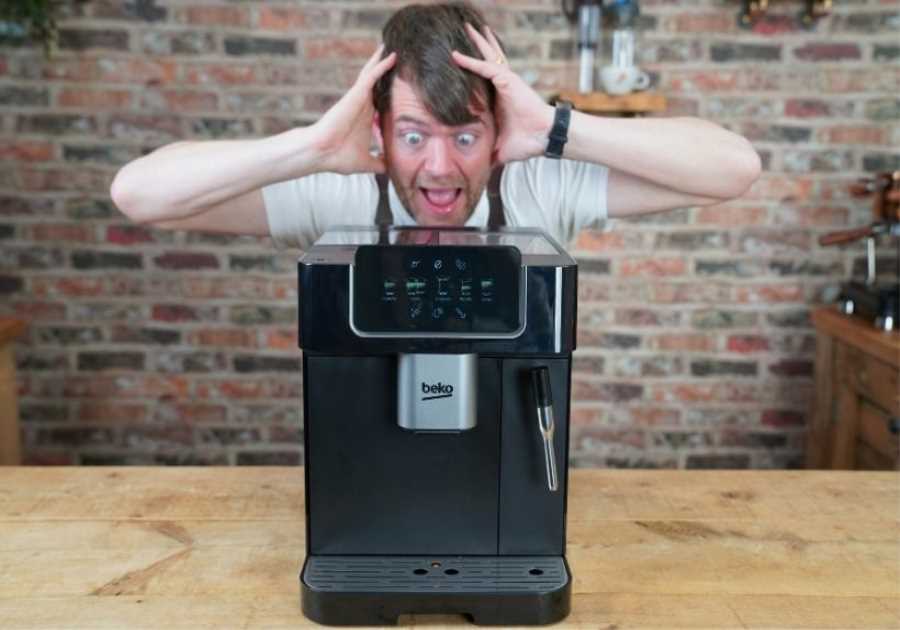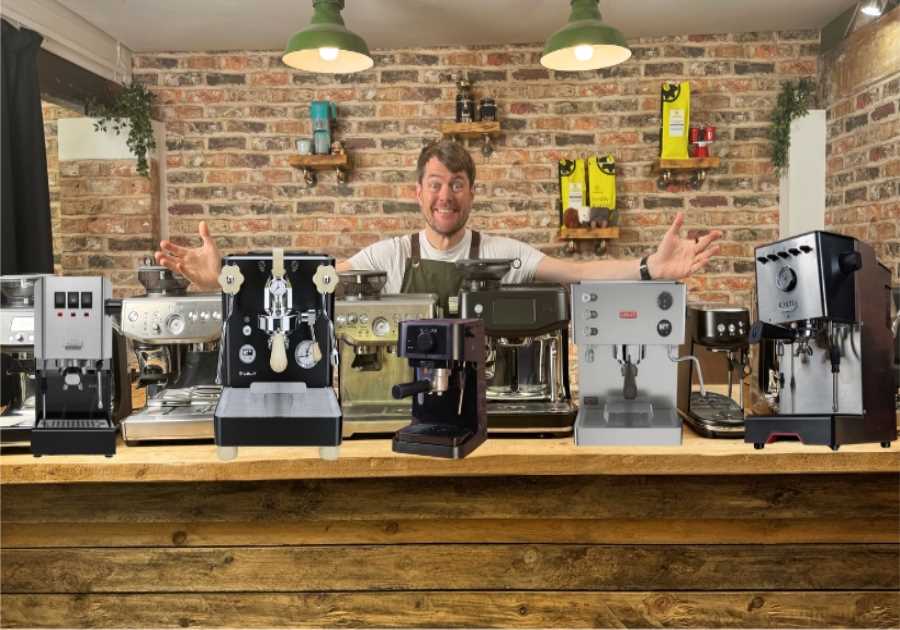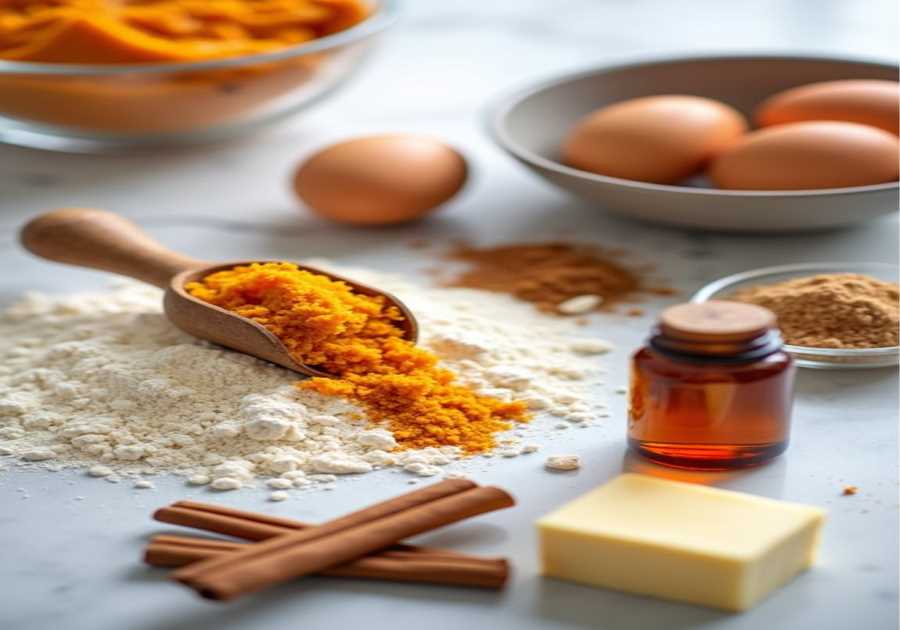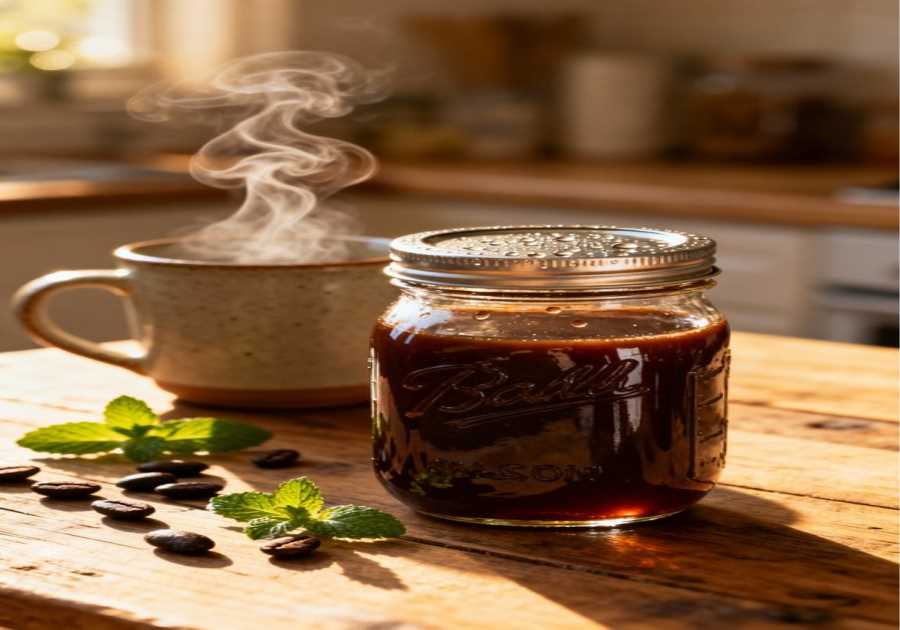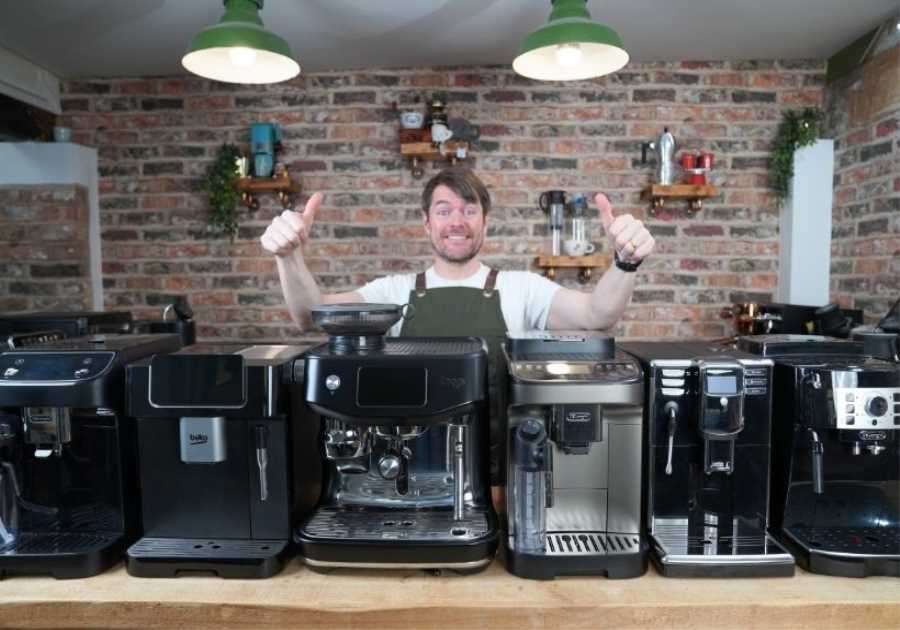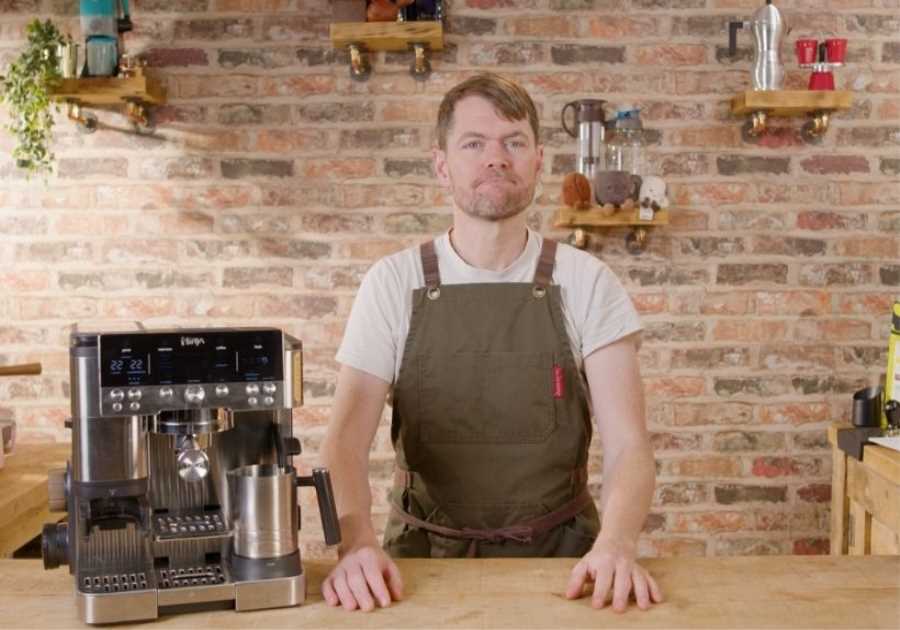So here you are on your quest for the best coffee beans for cafetiere, and if you got here by searching for “coffee for cafetiere” or similar, and not something along the lines of “best coffee for French Press”, or “best coffee for Plunger”, then congratulations you on your grasp of the English language, and your refusal to allow yourself to turn American! 
My kids grew up with the internet, a lot of which is of course American, and it always catches my attention when I hear them pronouncing words in the American way, Mayonaise for example, various other little Americanisms.
Having been mainly an 80's & 90's kid (I was born in the latter part of the 70s), I was exposed to American films of course, but we didn't have the internet until I was in my late teens, and even that was on the old 56k dial-up modems, so I wasn't exposed to masses of language and expressions from across the pond like the kids of today are.
I do get quite a few Brits asking me about French press coffee or plunger coffee, and that usually (not always, to be fair) gives me an idea of their age ;-). Anyway, I really don't mind what you call it, cafetiere coffee, plunger coffee, French Press coffee, whatever it may be, you're clearly wondering what is the best coffee for this particular brew method, since you're here.
This is actually a very good question, and it's one that I don't think enough people ask. Not just the best coffee for cafetiere question, but for any brew method, as so many people put all of the focus on their brewing methods and gear, and virtually none on the coffee itself.
The most important element when it comes to making the best possible tasting cup of coffee (via cafetiere or any other brewing method) is the coffee, and different kinds of coffee beans lend themselves to different brew methods, which is what makes this “best coffee” question one of the most important, but one of the most overlooked questions about coffee in general.
The Best Coffee for Cafetiere & All Other Brew Methods
Before we get into specifically what is the best coffee for cafetiere, I want to just make a distinction about the kinds of coffee out there, and talk about what I personally believe to be the best type of coffee regardless of what the brew method is.
In short, the best coffee for cafetiere and any other brew method is the best quality coffee – which is freshly roasted high-quality coffee from coffee roasters or specialist suppliers.
What most brits think of as coffee, whether it's instant, pre-ground or whole bean, is supermarket coffee. Supermarket coffee is a very particular type of coffee, generally speaking, OK you'll find some exceptions to this, but not that many.
You may think “nah, supermarket coffee is just normal coffee”, and yeah you'd be right there, because this has been the mainstream coffee in the UK and the rest of the western world, I think it's fair to say, for quite some time. This is the reason that most “mainstream” coffee drinkers will usually be of the opinion that “coffee just tastes like coffee”, because this is more or less true for that kind of coffee.
What mainstream coffee mainly is, is commodity coffee, roasted dark, at an unknown date.
The word “commodity” refers to how this coffee is traded, as most of the coffee you'll pick up from supermarkets is traded on the commodities market, at whatever the commodity price is. This is a huge market, where coffee is traded in humungous volumes, and due to the volatility of the market prices, much of the beans that are sold via this market are the more commercially grown “sun grown” coffee beans which are grown as a commodity.
Just like rice, salt or any other commodity, a coffee bean within this market, is just a coffee bean, so the cheapest – most commercially viable production methods are used by producers who're trading on this market.
When I say it's roasted dark, coffee from supermarkets will often come with a “strength” setting, which actually refers to the roast level and has nothing to do with strength at all (we determine the strength by the brew ratio, but more on that later) and it's a range of dark to darker. What is usually referred to as medium, or 3 out of 5, for example, would usually be considered towards the dark side of things where speciality coffee is concerned.
The reason for this is that this coffee is traded in such massive quantities, it contains such a big range of varietals and often beans from different origins (unless it's single origin, which doesn't make it speciality, as I'll explain in a sec) that it would be very difficult to ensure batch consistency without roasting it darker. Also, this kind of coffee is likely to have what are referred to as “taste defects”, which roasting darker will hide.
The other thing that most supermarket coffee has in common is that you won't usually know when it was roasted. In my opinion, freshness isn't really all that important for this kind of coffee, especially not when we're talking about coffee for cafetiere, as it's going to taste relatively similar regardless of how long ago it was roasted.
When it comes to speciality coffee, it's usually advisable to drink it within a few weeks of roast date, and this isn't because speciality coffee ages faster or anything like that, it's simply that there is some flavour to be lost in the first place. With high-quality freshly roasted coffee there are lots of interesting flavour notes available that you wouldn't want to lose to the ageing process, which is why this kind of coffee usually comes with roasted on date.
Does Fair Trade Mean Better Quality?
It's quite common for people to equate “Fair Trade” with quality, but Fair Trade doesn't necessarily say anything about the quality of the coffee, it really depends on where you're buying your coffee from. If you're buying freshly roasted Fair Trade certified coffee from speciality roasters, then the fact that it's coming from a speciality roaster (and it'll usually have a SCA score, unless it's a blend) is how you know it's a high-quality coffee.
The Fair Trade symbol in and of itself simply means that the producer is a member of the fair trade scheme (and they have to pay for this, by the way, it isn't free), so it means that they're therefore guaranteed to receive either the fixed Fair Trade price or the market price (whichever is higher).
This does beg the question wouldn't ALL coffee producers pay for this if they could afford it or if they were able to join a qualifying coop, and that raises the question “how fair is Fair Trade” – a commonly asked question, and a real bone of contention across many industries, not just coffee, but I don't believe I'm qualified to answer that question, other than to say I can see the reason for the question.
OK so now we've got that out of the way, let's talk more specifically about the best coffee for cafetiere.
Whole Beans Are Best
If you're already sold on grinding your own, then feel free to skip this section, but if you were thinking along the lines of the best pre-ground coffee for cafetiere, then just be aware that grinding your own coffee can make a huge difference, not only to the taste of your coffee but to the overall experience.
The main reason it's best to buy whole beans and grind your own is simply that beans have some inbuilt protection against oxidation that is lost as soon as you grind them. So much more of the surface area of the coffee is exposed to oxygen, and the only difference between cutting up an apple for example, is that you can't see the results of oxidation in coffee.
This is particularly important if you're buying high quality, freshly roasted coffee. If you're investing money into this kind of coffee, it's such a shame to not enjoy it at its best, meaning as fresh as possible, and coffee stays fresher for longer whole bean vs pre-ground.
If you don't yet have a grinder, see:
Making Better Cafetiere Coffee
As well as choosing the best coffee for cafetiere, and the best coffee for your palate, as we'll discuss shortly, and some other tips that you'll get from reading the rest of this post, it's important to note that there isn't only one way to use a cafetiere.
Most people will be using the ancient “grind it coarse, chuck it in and plunge” method, which actually works remarkably well which is more than likely why the humble cafetiere has been such a popular kitchen brewer for so long, it's not complex at all and it delivers coffee quality that most people are very happy with.
However, within the past few years the poor old cafetiere has been relegated to the back of a cupboard in many homes, along side the spiralizer and bread maker that have been there since they were used once in 1998.
The reason for this is that we're in the midst of a coffee revolution in the UK, one which started with coffee itself but also spread to coffee makers, and I'm talking about the speciality coffee movement. When it come to immersion brewers (that's the technical terminology for how a cafetiere brews, as the ground coffee is immersed in the brew water), there are other brewers gaining the limelight, Aeropress for example, which has relegated many cafetieres to the pan cupboard or charity shop.
Don't get me wrong, I think the Aeropress is amazing, it's such a versatile brewer, and it's so quick and easy to brew with, and to clean, but it's not cafetiere. If you use it with one of the more coarse mesh reusable filters you can buy for Aeropress, it's closer where mouthfeel is concerned, but it's still not quite cafetiere.
So if you really enjoy cafetiere coffee, but you feel like you're not getting the best from the beans you're using, you don't have to go for a more modern and of-the-moment brewer, you can simply tweak your cafetiere brewing method.
There are loads of videos on YouTube with more modern Cafetiere brewing methods, you'd be best searching for “French Press” on YouTube, because that's what most people refer to this method as, on YouTube, even many Brits… but I can understand why, as a lot of the search traffic on YouTube is American.
My favourite method is the one taught by the Hoff. No, not David Hasselhoff (my mate ended up getting drunk with him, in London, after trying to chat up the Hoff's wife, true story) – I am of course referring to the legendary James Hoffman, ex UK & World barista champion, and one of the most knowledgeable people on the planet where coffee is concerned.
Cafetiere Coffee
There really isn't any such thing as cafetiere coffee, as such, in the same way that there's no such thing as “espresso coffee” where the beans themselves are concerned. There are roast profiles that are favoured for certain brew methods. For example, coffee beans for espresso are traditionally roasted at the darker side of things, but you can theoretically use any beans for any brew method, it just depends on what you enjoy.
If you're buying pre-ground coffee, then you'd usually be better off choosing a “cafetiere” grind, which simply means coffee that has been ground more coursely for cafetiere brewing, or if you're going for a more modern technique such as James Hoffman's, you'd probably be better choosing “filter” as the pre-ground option, but as I said earlier, it's a much better idea to buy wholebean and grind your own, if at all possible.
Forgetting the grind size though and focusing specifically on the type of coffee that may be best suited for cafetiere brewing, it really depends on your palate. I find the majority of people who brew via cafetiere are looking for a bold, more intense coffee, and if that's the case with you, you'll probably find that if you go for an espresso blend, or a medium dark to dark roasted single origin, you're more likely to produce satisfying cups of cafetiere coffee. Although having said that, I'd advise being adventurous and trying lots of coffee beans, and I'd also advise brewing via pourover.
At this point you may be thinking something along the lines of “Kev, sod off, I'm looking for advice on what coffee to use for cafetiere, I'm not interested in other brew methods”, and that's fair comment, but having other brew methods at your disposal allows you to work with (and get the best from) a wider range of coffee beans, and it also allows you to satisfy a range of different moods.
Being able to produce pour over coffee, simply requires spending a few quid on something like a V60 (you can literally get them for a fiver) and some filters, and the coffee you can produce via pourover is very different than cafetiere coffee, even if you're using the same coffee beans. Aso, if you get a bag of coffee beans and you find it just doesn't quite work for cafetiere, you may find it's perfect for pour over.
If you're thinking of signing up for a discovery coffee subscription from Blue Coffee Box for example (and if you do, use the discount code CB999), or the Beanz.com subscription, you'll get various different coffees, and you may find that some are great for cafetiere, but you may well find that some just don't quite deliver the kind of coffee you enjoy via cafetiere, but you may also find that these coffees are amazing via pourover.
By also having a pourover device, you have the ability to experience a completely different cup of coffee to what you'll experience with cafetiere, and brewing via pourover will allow you enjoy certain coffees much more than you might via cafetiere.
If you're taking my advice on this, just keep in mind that V60 are great, and are one of the most popular, but flat-bottomed brewers (Kalita, Orea, April, Fellow Stag) are much more forgiving and generally easier to get great coffee in the hands of pourover beginners.
Anyway, going back to what coffee you might enjoy the most if you brew via cafetiere, this is a case of each to their own as taste is very subjective, but most people who brew via cafetiere I find are looking for big bold cups of coffee, rather than interesting acidity and so on, so I think you'll probably find you're better off with slightly darker roasts, and the bigger bolder coffees you'll usually get if you look for the more traditional espresso blends.
If you're looking for some stonking freshly roasted coffee for cafetiere, then obviously I'm biased as this is my coffee ;-), but these are the coffees from The Coffeeworks that I think you'll probably enjoy the most if you're looking for coffee for cafetiere brewing:
Use Discount Code CBNC25 @ cworks.co.uk for 25% Off Your First Order.
If you were to push me for the no1 coffee from The Coffeeworks that I think most people would enjoy the most via cafeteiere, it would be the deeply satisfying chocolate brownie blend. This is a medium/dark bean, so it's not the super dark roasted coffee you may be used to if you've been buying bags of coffee marked as “intense” or “strong” from the supermarket, but I knew as soon as I tasted this blend that it was going to be the new best seller, and I was proven correct, as this has been our no1 seller since it was introduced to the range.
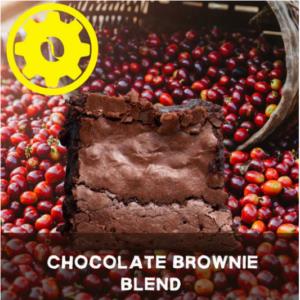
Use Discount Code CBNC25 for 25% Off Your First Order.
House Espresso Blend – Pact Coffee
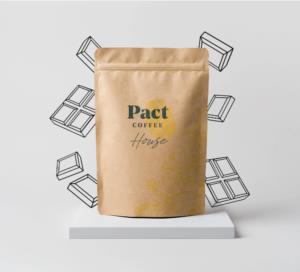
Click Here for £5 off Your First Order
Dark Blend or House Blend – Grind
I've tried both the house blend, and the dark blend, from London (Shoreditch) based roasters Grind, and they're both the kind of coffees I think a lot of people will enjoy for cafetiere, but if you like your coffee a bit more bold, you may prefer the dark blend. This is a richer, deeper tasting blend with a heavy body, that may really enjoy if you tend to prefer a punchy “strong” coffee via cafetiere.
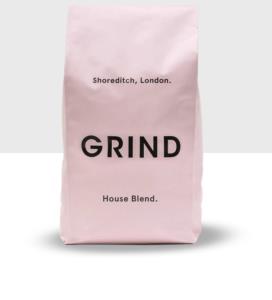
Use discount code CBGRND33 for 33% off Subscriptions (3 months).
Taster Pack – Coffee World
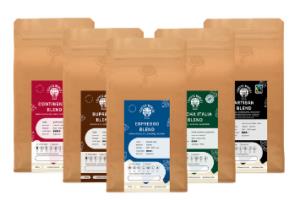
Kev's Cafetiere Coffee What The FAQ
Can you use any coffee in a cafetiere?
You certainly can, it's just down to the kind of coffee you like. Many people tend to enjoy bolder, more intense tasting coffees via cafetiere, so you might find an espresso blend to be perfect for your palate, or you may even find something like a Monsooned Malaba or Old Brown Java hits the spot for you.
You can literally use any coffee in a cafetiere though, so my advice would be to try lots of different coffees, but also to have a pourover brewer too, so if you try a coffee that just doesn't work for you when you're in the mood for cafetiere, it may work perfectly for your palate when you're in the mood for a pourover.
Is cafetiere coffee the same as ground coffee?
No, this is a common misconception which is down to labelling of pre-ground coffee. Some bags of pre-ground coffee will be labelled as “cafetiere” and some will be labelled as “espresso”, or “filter”, and this just refers to the grind size that this pre-ground coffee has been ground at, as each brewing method requires a different grind size.
Is cafetiere coffee stronger than espresso ?
It depends what you mean by stronger, but overall I'd say no, regardless of what is actually meant by “stronger” here, I'd expect espresso to be the stronger coffee. Most people will be referring to the intensity of flavour, when they talk about strength, and when we're comparing cafetiere coffee to espresso, espresso is a much shorter and more intense shot of coffee.
Cafetiere coffee is extracted at a lower coffee-to-water ratio than espresso, so it isn't as intense as espresso, but it's about the most intense, and also the biggest in terms of mouthfeel, after espresso.
Is cafetiere better than a coffee machine?
It depends on what kind of coffee machine you're referring to, and it depends on your palate. Most coffee machines are either filter coffee machines or espresso machines, neither of these will produce cafetiere coffee, so if your favourite kind of coffee is the type made with a cafetiere, then you'll probably prefer a cafetiere to a coffee machine, which is good new for you since they're so much cheaper, and less problematic to maintain.
Which is better, filter or cafetiere?
This is a bit like asking which is better, white wine or red wine? I'd say red, because in my humble opinion, all white wine is good for is removing red wine from sofas! ;-). I love red wine, white wine just doesn't suit my palate. Filter coffee and cafetiere coffee are different styles of coffee, for want of a better word, so if you prefer filter coffee, then filter coffee is better for you, if you prefer the taste and mouthfeel of cafetiere coffee, then just as I wouldn't bother drinking white wine as I know I don't like it, you would be better off drinking cafetiere coffee.
Life is like a box of chocolates, so join my Brew Time list, subscribe to my YouTube Channel, try my coffee at The Coffeeworks (use discount code coffeebotherers), follow me on Twitter & Instagram, follow the coffeeblog FaceBook page, and that’s all I have to say about that.
The post Best Coffee For Cafetiere appeared first on Coffee Blog.
By: KevTitle: Best Coffee For Cafetiere
Sourced From: coffeeblog.co.uk/best-coffee-for-cafetiere/
Published Date: Sat, 11 Feb 2023 16:10:01 +0000

